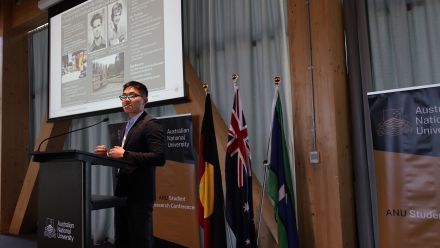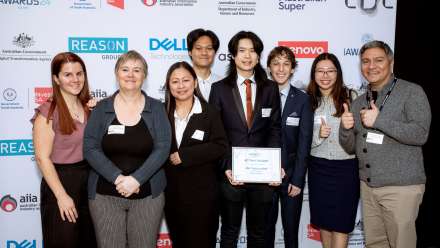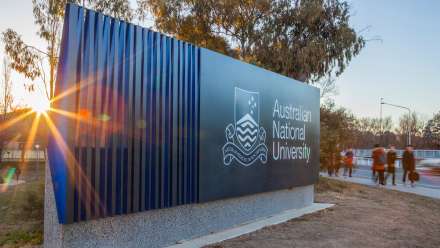ANU physicist making waves in space joins top global society
A theoretical physicist from 天美传媒 National University (ANU) whose pioneering work has fundamentally altered our understanding of the deepest and darkest parts of the Universe and space-time itself has been recognised among the world's best gravitational scientists.
Distinguished Professor Susan Scott has been newly elected as a Fellow of the International Society on General Relativity and Gravitation (ISGRG) for 2022. Scott is the first Australian to be elected as a Fellow of the Society and she joins an elite club of exceptional scientists including world renowned theoretical physicist Stephen Hawking and Nobel Laureates Roger Penrose and Kip Thorne.
Distinguished Professor Scott, who is also the Chief Investigator with the Australian Research Council Centre of Excellence for Gravitational Wave Discovery (OzGrav), has been appointed to the Society for groundbreaking contributions to the understanding of singularities and the structure of space-time. Singularities are known as places in space and time where things go very wrong, for example, if a travelling particle simply blips out of existence and has no future.
Much of Distinguished Professor Scott's research involves investigating the properties of these singularities related to black holes. Her work also seeks to understand the properties of systems of black holes and neutron stars, by studying the gravitational waves they emit.
Distinguished Professor Scott, from the ANU Centre for Gravitational Astrophysics (CGA), says she is "deeply honoured" to be the first Australian Fellow of the ISGRG.
"Election to Fellowship of the ISGRG is very prestigious, and there are only a few tens of Fellows across the world," she said.
"In Australia, and also at ANU, we now have a very established and successful research base in many areas of endeavour in gravitational research, including the detection of gravitational waves, which help us to unlock many of the Universe's mysteries.
"My research is all about gravity. I seek to understand how it shapes the Universe and warps it to the extent that it creates black holes."
In 2015, Distinguished Professor Scott was part of a 1,000-strong cohort of scientists from around the world that detected gravitational waves for the very first time. These waves are ripples in space and time caused by extremely violent events in the Universe.
This monumental discovery scientifically proved Albert Einstein's theory that gravitational waves would be caused by a collision of massive objects in space such as black holes. It also ushered in a new era of gravitational-wave astronomy and paved the way for a raft of new space discoveries, including the merging of two black holes, the collision of two neutron stars and the detection of black holes swallowing neutron stars -- breakthrough discoveries Professor Scott played a key role in.
A prominent figure in Australian science, Distinguished Professor Scott's contribution to the world-first discovery of gravitational waves earned her and fellow ANU researcher Professor David McClelland the 2020 Prime Minister's Prize for Science.
Distinguished Professor Scott, who is also a Fellow of the Australian Academy of Science, says she wants to use her newly obtained platform with the ISGRG to continue to champion Australian science and voice her aspirations for Australia to be a major player in the next generation of gravitational wave astronomy.
She's hopeful her appointment could help throw weight behind growing calls to establish and operate a gravitational wave detector in Australia.
"For many years, myself and other fellow scientists have been on a quest to site and operate a gravitational wave detector in this country. This would enable us to play a leading role in learning more about gravitational waves and their role in the Universe," Distinguished Professor Scott said.
The ISGRG was formed 50 years ago by colleagues and contemporaries of Albert Einstein, who had presented the miraculous theory of general relativity to the world in 1915.
The Society incorporates all areas of research and endeavours in the field of gravitation, including gravitational waves, cosmology, inflation and quantum gravity.


